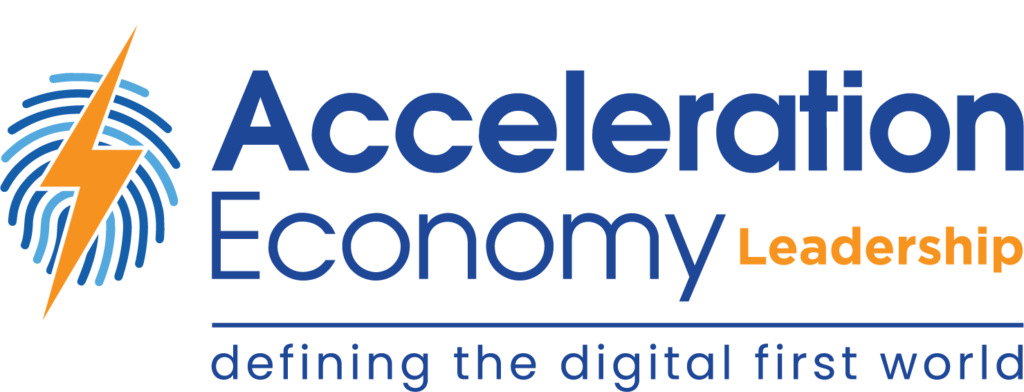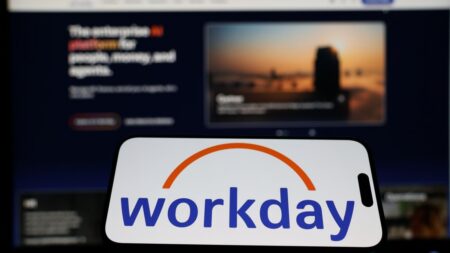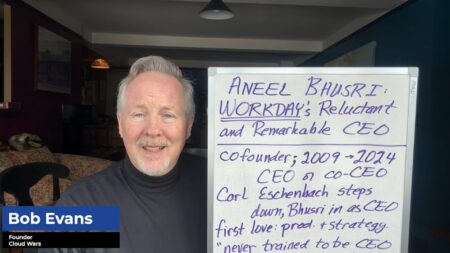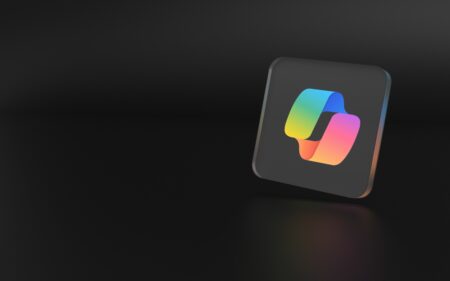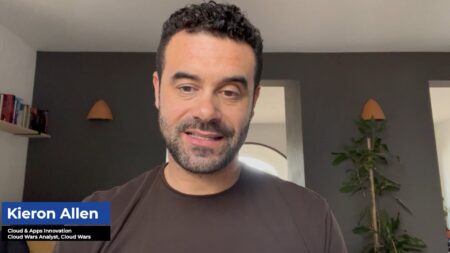In episode 32 of the Growth Swarm podcast, John Siefert, Bob Evans, Tony Uphoff, and Scott Vaughan offer thoughts and context around Microsoft CEO Satya Nadella’s comments around artificial intelligence (AI) being the next big computer platform. On Microsoft’s recent earnings call, Nadella said, “And the next major wave of computing is being born, as we turn the world’s most advanced AI models into a new computing platform.” The hosts define not only what this statement means, but also the takeaway for business users in their personal and professional careers. Additionally, the four explore the ways in which human intelligence is being redefined in a world of increasingly ubiquitous artificial intelligence.
Highlights
00:11 — John introduces his co-hosts and the topic of this episode, which focuses on Microsoft CEO Satya Nadella’s comments that AI is “a new computing platform.” John asks Bob, who has spent time trying to get more context around this statement, for some detail.
01:11 — When you hear the CEO of one of the most influential technology companies in the world say that “AI is the next major wave of computing” it opens up some questions, suggests Bob. He reached out to Microsoft’s PR firm with a few questions:
- If AI is, or will shortly be, that next computing platform, what is the current platform that Nadella is saying will be replaced or overtaken?
- If AI is the next computing platform, how does Microsoft describe the cloud in that context? If the cloud isn’t the current computing platform, then how does Microsoft want people to think about what the cloud is?
- How does Microsoft see AI as the next computing platform and the cloud coexisting? How does Microsoft see the future interaction between AI and the cloud?
Bob explains that his goal with these questions is to help people better understand how these two incredibly powerful technologies will work together.
02:35 — What response did Bob receive back from Microsoft’s PR firm? “Hi, Bob. I checked with the Microsoft team and they politely declined to comment.” Bob says he received a link to a publicly posted blog that shares the latest update on Azure. He was expecting a range of responses, but not expecting this.
03:20 — Microsoft is a company that leads with purpose-built statements, notes John. People would be “foolish” not to think that AI will profoundly impact absolutely everything we do. AI is not just the next computing platform — it is redefining life and human intelligence, no matter what it is engaging with.
04:23 — Tony “couldn’t agree more” with John’s comments. Microsoft is the company that “locks on to a vision, out-executes everybody, and sticks with it longer than everybody.” Tony says he isn’t surprised that Nadella is a bit more willing to step up as a visionary. Additionally, he suggests that we — analysts, buyers, and vendors, for instance — are all using “nomenclature of the past to describe something that is clearly the future.” Categorizing AI as the next computing model does not capture the energy of the profound nature of this transition. Tony believes this idea will be “the biggest transition in technology” of his lifetime.
07:03 — AI is not new — companies we engage with every day have been integrating this technology into their products for a long time. The rise of artificial intelligence, as seen through developments like ChatGPT, has been predicted for quite some time. John notes that it forces the world to reimagine what human intelligence means in an artificially intelligent world in order to stay relevant.
08:51 — Scott reports that he is not surprised about Microsoft’s response to Bob, adding that Bob “hit the questions perfectly” to be able to paint the picture of what these comments mean, given the complexities that lie underneath it. AI is the tip of the spear — its applications will touch so many people in many industries. Scott doesn’t consider AI and the cloud to be mutually exclusive, but rather, symbiotic, as AI will drive the use of cloud services. He finds it interesting that AI is so accessible to so many people and “more life-changing than the cloud.” AI is a huge step in the layer of predictive analysis, and that’s just one application.
10:53 — John notes that the application of AI for predictive analysis and what it’s doing demonstrates a true impact on businesses. To Scott’s point, John agrees that the cloud is the foundation that everything sits on top of, and AI applications are built on that platform. AI as a computing model will be built on the foundation of the cloud. All of the applications that are running on it will be infused with AI.
12:10 — What does AI as the new computing platform mean for businesses, especially those that have just made significant investments in cloud-based, ERP platforms, under the assumption that the cloud was the latest computing platform?
13:35 — Bob suggests that maybe what Nadella intended to say was that AI is not the next computing platform itself but will be “the enhancer” or will create the next computing platform. If he were a customer, Bob says he would be pretty “pissed off” and want some clarity from Microsoft — which was the nature of his questions addressed to Microsoft’s PR firm.
15:59 — Tony explains that what the hosts are describing here is a “go-to-market and communication issue, not a technology issue.” He notes that there are two components that are important in understanding the steep change in the accessibility of AI:
- Rise of generative AI, as noted through ChatGPT
- The natural symbiosis between AI and the cloud
In this case, Microsoft has the ability to “step up and articulate a future like that.” He notes that Microsoft has always had a “bit of hesitancy” to clarify things. Microsoft is missing a huge opportunity to take the “mystical technology” that is AI “out of the clouds,” and demonstrate its opportunities to customers.
19:08 — “We have to be students of what the impact of artificial intelligence can be on humanity, not just on our jobs, not just on an investment we made in technology,” suggests John. He asks Scott, Acceleration Economy’s go-to-market expert, for his thoughts on Nadella’s comments being a “go-to-market faux pas.”
21:07 — If someone thinks that a specific technology will future-proof their business, they are likely starting off on the wrong foot “because something is going to change,” says Scott. Microsoft’s statement is one that is big and bold, and “not backed up.” The development of AI is straying from the “customer support mindset,” as noted through chatbots and automation, and moving towards a “customer experience” perspective, that tries to make artificial intelligence better.
23:12 — John suggests that Microsoft should use more analogies to describe the shift in AI and its applications in order to put more context around Nadella’s statement and avoid the risk of what customers will think. In general, there needs to be some clarification on Nadella’s statements.
25:21 — Tony emphasizes Scott’s point that there is “no such thing as future-proofing,” since a new technology could be waiting just around the corner. He feels that inadvertently, Microsoft and other companies could really do themselves and their customers a disservice by not clarifying things. He does not expect companies to “have the riddle to the future,” but thinks they must be able to say “here’s how these technologies fit together, here are the benefits, and here is our near-term roadmap, and here’s how we are going to do it.” He imagines that the reason Bob did not receive answers to his questions for Microsoft is that the “scripting of that isn’t there yet.”
27:33 — In closing, John notes that the important reality of this is that AI will affect everyone in many ways — it is not a fad, nor a trend. In some sense, AI is science fiction coming to life.
Which companies are the most important vendors in AI and Hyperautomation? Click here to see the Acceleration Economy Top 10 AI/Hyperautomation Short List, as selected by our expert team of practitioner-analysts
Want more tech insights for the top execs? Visit the Leadership channel:



